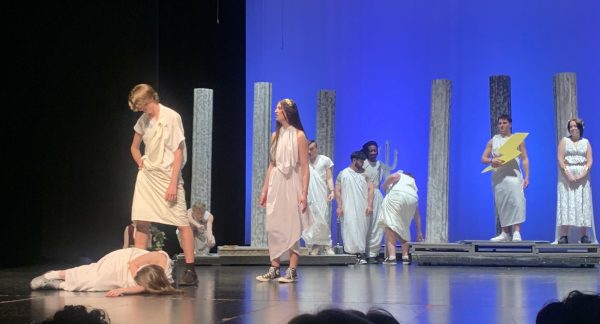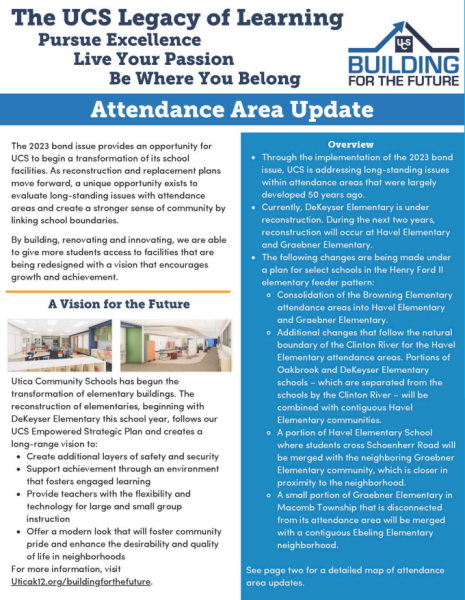Budget Cuts
balance the UCS 2016-2017 budget by the July 1 deadline, the school district and individual schools are facing mid-year reductions to make $2.16 million worth of cuts.
“I don’t want to be the one to make these cuts,” said Board Treasurer Dr. Robert Ross. “All of these programs are good programs and I don’t like to see anything reduced, but we’ve just gotten to the point where our expenses exceed our revenues by such a significant amount that we have to make reductions.”
After budget review, UCS board members determined the district doesn’t have enough fund equity to balance the difference between revenue and expenses. Continuing this spending would lead to an illegal deficit and increase the cost of borrowing money from the State.
“If we decide to go on a deficit budget, I think the path will be long and dark and we will be on the edge of an abyss,” Ross said. “We need to take a step back from the abyss and make sure we find a way to balance our budget over the next few weeks and get us to the point where we can survive without State intervention for another year.”
UCS is dependent on the State budget because 82 percent of the district’s funding comes from the State. As a result, exterior situations dealt with by the State, such as funding for Detroit schools, the Flint water crisis and higher rates of retirees, may affect the funding allocated to UCS in the 2016- 2017 school year. Additionally, there has been a decrease in the birth rate, which will lead to approximately 500 less students and less total government spending for UCS in the 2016-2017 school year. The mid-year budget cuts will help prepare for the possible decrease in money and lower the total deficit before entering the next fiscal year.
“We do not relish the fact that we find ourselves in this situation; however, we’ve got to start somewhere with making some reductions,” Superintendent Christine Johns said. “So based on that decision and some very very, good board dialogue, I personally am going to support that and would encourage my colleagues to also do so.”
From the district funds, the schools pay for day-to-day supplies. The supplies currently cut or being considered, such as: staples, paper for copies and paper report cards, are intended to have a limited effect on students’ daily operations.
“Day-to-day, hopefully students won’t see anything,” Principal Nanette Chesney said.” It shouldn’t impact you at all, that is our goal.”
In order to be more aware of what supplies are needed in the classroom, administration makes effort to include teachers on saving plans.
“We did have the staples for the copier and we actually did just run out, so now we are going to decide if we want to spend the money on that or something else,” Chesney said. “That’s what you do when you have a budget; you find out what the best use of the money is.”
Different departments have voted for different proposals. Science teachers voted for new science lab equipment instead of staples in the copier, according to Environmental teacher Linda Craun. While English teachers voted for district required novels over staples, according to English department head Lisa Hubbard.
“The benefits to budget cuts is that it makes you much more thoughtful. They make you set your priorities,” Chesney said. “I’m glass half full kind of person; I always think everything can be great. I want to look for the good in it, and to me the good is to set your priorities straight and ask what is the most important thing you want to get accomplished.”
Your donation will support the student journalists of Eisenhower High School. Your contribution will allow us to purchase equipment and cover our annual website hosting costs.




![Bringing an idea to life, senior sculpture student Braden Williams begins construction on a book-based sculpture. The sculpture concept revolves around fortune telling, which Williams will evoke with a head sculpt, sporting a third eye. “It's [the eye] a bigger focus on that face. It's the main focus. Gotta put a lot of detail into that,” Williams said.](https://ikenews.com/wp-content/uploads/2025/04/IMG_3413-1-600x481.jpg)